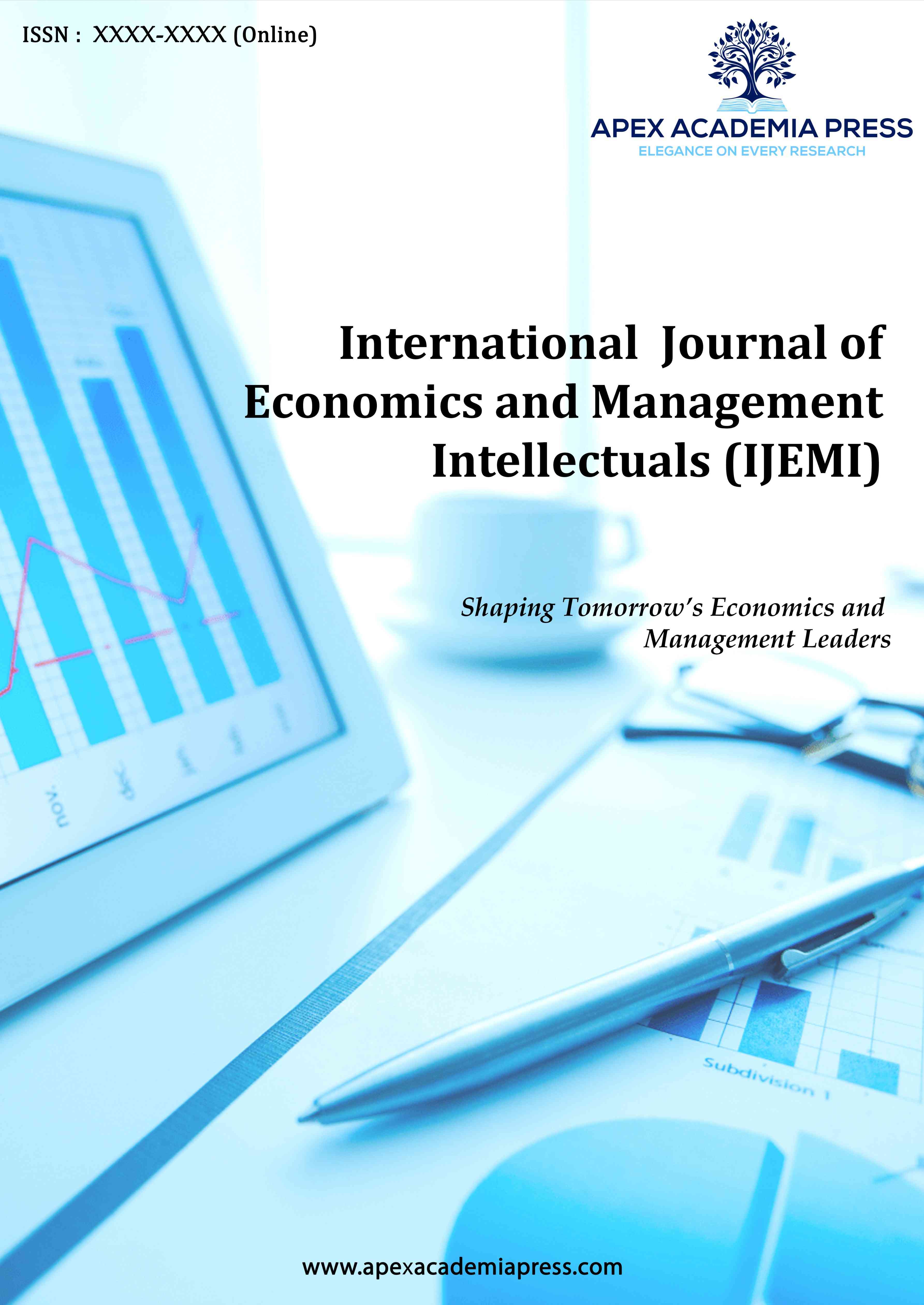International Journal of Economics and Management Intellectuals [IJEMI]
Labor Market Disruption by Automation and AI
Authors : Nguyen Thi Minh Chau
Open Access | Volume 2 Issue 1 | 2025
https://doi.org/10.63665/ijemi_y2f1a004
How to Cite :
Nguyen Thi Minh Chau, "Labor Market Disruption by Automation and AI", International Journal of Economics and Management Intellectuals [IJEMI], 2025, 2(1): pp. 15-20.

Abstract
The fast rollout and spread of automation technology and artificial intelligence (AI) are radically transforming the global labor market. Everywhere, production and services, automation and AI are causing profound transformations in types of jobs, skills, and economic destiny. Whereas some sectors are haunted by job loss and rising inequality, others are gaining new jobs and new industries. This essay reviews the mechanisms by which AI and automation upsets labor markets, considers social and economic effects, and evaluates the efficacy of policy interventions as they currently exist. The essay also provides forecasts on workforce trends in the near future and on the potentiality of AI-human collaborations in the near future. The policymakers, firms, and employees need to get familiar with these changes so that they can survive in the future of work when automation and AI reign supreme.
Keywords
Labor Market Disruption, Automation, Artificial Intelligence (AI), Job Displacement, Workforce Transformation, Skill Gap, Economic Inequality, Policy Responses, Future of Work, Technological Unemployment.
Conclusion
A. Summary of Key Findings:
In short, AI and automation present a challenge and a chance to the international labor market. While numerous jobs are being lost, jobs and industries are being created, and employment is changing its nature. Automation and AI can bring productivity but create gargantuan questions regarding unemployment, income inequality, and job insecurity. It will be for governments, companies, and citizens themselves to ready themselves for the changes with the investment of money in retraining initiatives and education drives and ethical regulation of AI to ensure that beneficial impacts of the technologies accrue to all.
B. Policy Recommendations for Managing the Disruption:
Policy-makers must act and put in place inclusive upskilling and reskilling opportunities for workers, especially in sectors that are at the greatest risk from automation. Universal Basic Income and other lifetime learning schemes which allow career migration into emerging sectors and reduce poverty levels can limit the social ill of automation. Frameworks on the development of AI must be funded by governments so that the technologies may be applied safely.
C. Final Thoughts on Navigating the Future of Work in an Automated World:
The future labor will definitely be shaped by AI and automation, but these technologies must be implemented to serve society. By embracing human-AI collaboration and reskilling and upskilling workers to adapt to new labor market demands, there is a means of ensuring that automation boosts human potential and not diminishes it. With well-defined policies, technology manufacturing based on ethics, and concern for human welfare, it is a realistic vision to be an automated world toward more economic progress and social justice.
References
- Ganuthula, V. R., & Balaraman, K. K., Skill-Based Labor Market Polarization in the Age of AI: A Comparative Analysis of India and the United States. arXiv preprint, 2025. https://arxiv.org/abs/2501.15809
- Fan, T., The Labor Market Incidence of New Technologies. arXiv preprint, 2025. https://arxiv.org/abs/2504.04047
- Eloundou, T., Manning, S., Mishkin, P., & Rock, D., GPTs are GPTs: An Early Look at the Labor Market Impact Potential of Large Language Models. arXiv preprint, 2023. https://arxiv.org/abs/2303.10130
- Qiao, D., Rui, H., & Xiong, Q., AI and Jobs: Has the Inflection Point Arrived? Evidence from an Online Labor Platform. arXiv preprint, 2023. https://arxiv.org/abs/2312.04180
- Pizzinelli, C., Panton, A. J., Tavares, M. M., Cazzaniga, M., & Li, L., Labor Market Exposure to AI: Cross-country Differences and Distributional Implications. IMF Working Papers, 2023. https://www.imf.org/en/Publications/WP/Issues/2023/10/04/Labor-Market-Exposure-to-AI-Cross-country-Differences-and-Distributional-Implications-539656
- Sun, Z., The Impact of AI on Labor Market and the Corresponding Countermeasures. Advances in Economics, Management and Political Sciences, 2025, 138: 95–100. https://doi.org/10.54254/2754-1169/2024.19224
- Huang, Y., The Labor Market Impact of Artificial Intelligence: Evidence from US Regions. IMF Working Papers, 2024, 199. https://doi.org/10.5089/9798400288555.001
- Drydakis, N., Artificial Intelligence and Labor Market Outcomes. IZA World of Labor, 2023. https://wol.iza.org/articles/artificial-intelligence-and-labor-market-outcomes
- OECD, Artificial Intelligence and the Labour Market: Introduction. OECD Employment Outlook 2023, 2023. https://www.oecd.org/en/publications/oecd-employment-outlook-2023_08785bba-en/full-report/artificial-intelligence-and-the-labour-market-introduction_ea35d1c5.html